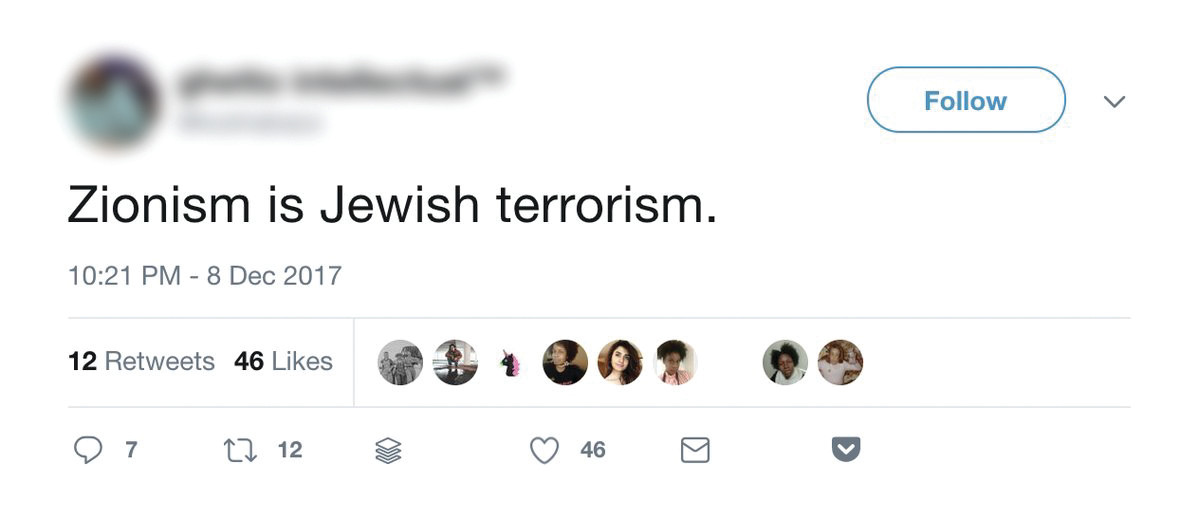Malverne, West Hempstead residents share thoughts on social media report of increase in anti-Semitism
The Anti-Defamation League, whose mission statement cites its battle against anti-Semitism, released a report on May 7 showing that the number of anti-Semitic tweets has risen in the past year in comparison with an ADL survey from nearly two years ago — despite the social media platform’s attempt to limit hate speech.
At least 4.2 million anti-Semitic tweets were shared or re-shared in English on Twitter from Jan. 29, 2017, to Jan. 29, 2018, according to the report, titled “Quantifying Hate: A Year of Anti-Semitism on Twitter.” The tweets researched were sent from roughly 3 million Twitter names. ADL officials said the report’s margin of error is 3 percent. The ADL had noted in an October 2016 report that 2.6 million anti-Semitic tweets were posted between August 2015 and July 2016.
“This new data shows that even with the steps Twitter has taken to remove hate speech and to deal with those accounts disseminating it, users are still spreading a shocking amount of anti-Semitism and using Twitter as a megaphone to harass and intimidate Jews,” Jonathan Greenblatt, the ADL’s CEO, said in a statement ac-companying the report. “We hope this report will create a renewed sense of urgency among all social media providers that this problem is not going away and that they need to find innovative new ways to tamp down the spread of hatred online.”
Rabbi Art Vernon, spiritual leader of Congregation Shaaray Shalom in West Hempstead, said the report’s findings stem from the Israeli-Palestinian conflict, and that it highlights the shift from armed warfare to psychological warfare. Earlier this year, the ADL reported that there was a 90 percent increase in anti-Semitic incidents in New York state in 2017.
“The Palestinians and their allies know that they cannot defeat Israel militarily,” Vernon said. “They also know that defeating Israel diplomatically is also very challenging.” He added that social media is one of the most available resources for people who harbor negative attitudes towards Jews and Judaism.
The report identified major anti-Semitic themes on Twitter, from 18th-century conspiracy theories that the Jewish banking family the Rothschilds controlled the world’s money, to mentions of Harvey Weinstein and Jewish predators, pre-dating Weinstein’s May 24 arrest for rape.
Recurring anti-Semitic stereotypes include claims that Jews are greedy or that they control banks, media, governments and academia; conspiracy theories, such as Jewish control of the Federal Reserve and the existence of a Zionist Occupation Government; claims that Jews are cursed for killing Jesus; denial of the Holocaust; and criticism of billionaire George Soros.
Shlomit Metz-Poolat, president of Kehilat Ahavat Yisrael in West Hempstead, who is an avid Twitter user, said that having the ADL as a watchdog is needed. “We should be using the internet to connect humanity,” Metz-Poolat said. “Instead, you have different groups of people using it to tear us apart, and the internet is becoming such a tool of hate. That’s what’s painful to me.”
“I’ve been very lucky that I have not had to deal with this personally, but I know people who have,” said Rabbi Susan Elkodsi, spiritual leader of the Malverne Jewish Center, who uses her Twitter account to promote events at her synagogue. “To me, we should just be able to accept and cherish our differences because that’s what makes the world go around, and it’s unfortunate that we can’t do that as a society.”
Multiple studies have shown that the impact of social media can be harmful, especially to young people, since they are among the heaviest users of platforms such as Twitter.
“For many younger people, that’s where they live,” Vernon said. “Making sure that those environments are safe and appropriate is a challenge but an important concern for everybody.”
Vernon also said that there two main challenges to limiting anti-Semitic tweets: establishing clear guidelines and ground rules for what’s appropriate and what’s not, and developing technology and management systems to remove content that does not meet those standards.
“We’re not going to shut down the internet because people use it inappropriately,” he said. “However, all of us need to be alert, aware and knowledgeable.”
ADL officials said they would continue to work with Twitter and other industry leaders, through the ADL Center for Technology and Society and the center’s Cyberhate Problem-Solving Lab, to limit the distance and the speed with which hate can spread online. ADL was an inaugural member of the Twitter Trust and Safety Council.
“We are deeply committed to working with the industry to find new solutions to combating online hate, and to help industry harness the power of artificial intelligence and machine learning to filter out offensive content,” Greenblatt said. “We’re pleased that Twitter has already taken significant steps to respond to this challenge.”
To read the entire report, go to https://bit.ly/2GOFdZu.
Have an opinion about anti-Semitism on social media? Send your letter to the editor to ngrant@liherald.com.






